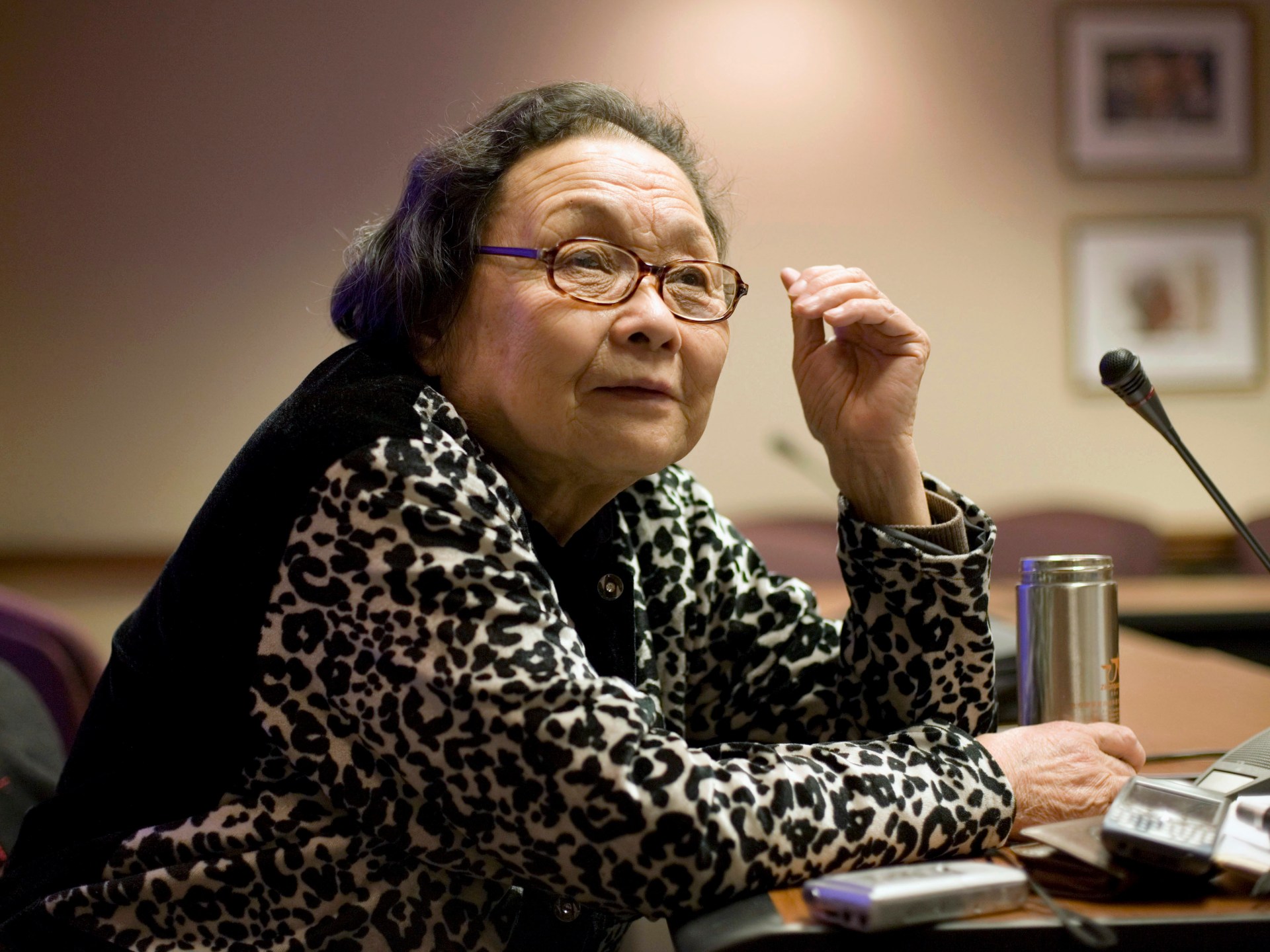In the early 1990s, a mysterious illness began to swiftly spread among villagers across several provinces in central China.
While HIV/AIDS had already emerged in other parts of the world, such as Europe and the United States, where cases primarily resulted from sexual contact, China witnessed a different mode of transmission. Individuals became infected through the sale of blood and plasma or via contaminated transfusions—a devastating reality that unfolded particularly in Henan province, the heart of this troubling trade.
The enormity of the crisis, affecting as many as 300,000 people, was revealed by Dr. Gao Yaojie, a retired gynecologist from the local community.
Dr. Gao’s courage and determination came to light long before Dr. Li Wenliang, the ophthalmologist who bravely raised concerns about COVID-19, only to succumb to the virus in early 2020. Dr. Gao emerged as China’s foremost whistleblower, shedding light on the origins of China’s AIDS epidemic. However, her noble act led to 14 years of exile, culminating in her passing last December at the age of 95 in New York.

Dr. Gao Yaojie (Credits: Medical Xpress)
Despite official attempts to erase her legacy—according to China’s equivalent of Wikipedia, Baidubake, Gao was depicted as settling overseas on a visiting fellowship—Chinese netizens mourned her death on Weibo, the platform where they also commemorated Dr. Li.
Gao’s journey from national prominence to relentless persecution underscored Beijing’s uncompromising stance, even during a period of purported openness to the world.
“She simply sought the freedom to speak her truth, to reveal the realities behind China’s AIDS crisis, and to preserve a historical record,” remarked former journalist Lin Shiyu, who edited many of Gao’s books published during her exile in the United States. “This quest for truth compelled her to leave China.”
The COVID-19 pandemic’s unresolved origins illustrate the far-reaching consequences of Beijing’s enforced secrecy. Worldwide, over 7 million lives have been claimed by the virus, which first emerged in Wuhan in late 2019, according to the World Health Organization.
Gao did not set out to be an activist or a whistleblower. Her awakening came when she encountered patients in Henan province exhibiting symptoms typical of AIDS. Few had been screened for HIV, let alone diagnosed until Gao intervened.
“As a doctor, I couldn’t ignore the signs; I felt a duty to prevent the spread of this epidemic. However, I was unaware of the profound forces fueling HIV transmission at the time,” Gao reflected in her 2008 memoir, “The Soul of Gao Yaojie.” “Had I known, I might not have summoned the courage.”

Dr. Gao Yaojie (Credits: The Economist)
She soon uncovered the plasma trade, particularly rampant in rural areas where impoverished villagers sought additional income. After Beijing restricted imported blood products, domestic demand surged, exacerbating the crisis.
Even the Chinese Red Cross and People’s Liberation Army hospitals engaged in the blood trade. Local officials, eyeing profits, misled villagers into believing that selling plasma was beneficial for their health. Many fell victim to HIV due to the routine reuse of contaminated needles.
Gao’s efforts to expose the transmission source and halt the blood trade earned her recognition from the central government despite stirring local officials’ discontent. When provincial authorities placed her under house arrest in 2007, the health minister intervened, enabling Gao to travel to the US to receive an award.
However, the tide turned against Gao and others. Dr. Wan Yanhai, a former health official turned advocate, was detained in 2002 after disclosing a classified government document detailing 170 AIDS-related deaths.
Similar to the COVID-19 crisis, the impulse to conceal stemmed from ideological motives: Beijing’s insistence on the superiority of its communist system brooked no dissent. As Wan Yanhai reflected from New York in February, where he had been barred from returning to China since 2010, “The desire to maintain the façade of infallibility runs deep.”
For Gao, international acclaim and foreign media coverage only heightened Chinese officials’ determination to suppress her. Following a book tour to Hong Kong in 2008, authorities escalated surveillance and severed her ties with family members. Several months later, Gao fled with only essential belongings, including a blood pressure meter and a floppy disk containing patient records and photos.
At 81, Gao became the oldest dissident to flee China. Shortly after her passing, economist Mao Yushi set a new record at 95, celebrating his birthday in Vancouver after fleeing China due to governmental pressure.
Gao remained prolific in her writing until her final days. Despite feeling constrained by exile, she never took her newfound freedom for granted.
“The US is not a paradise,” she acknowledged, “but had I not left [China], I would not have lived past 90.”
























